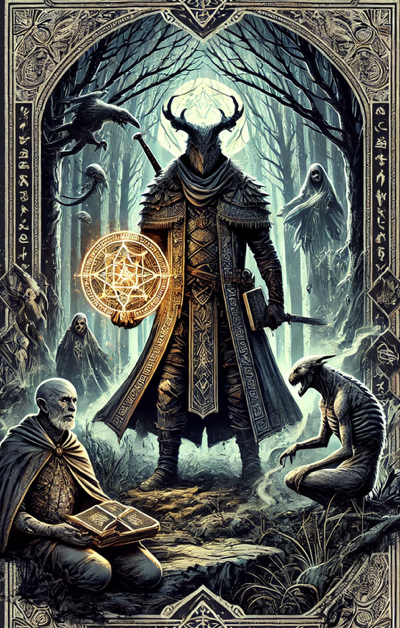Gradually, I developed quite a few harmful methods on my own, yet I never left any leverage behind. I thought I could earn my mother's smile, but what I saw instead was her resentful gaze. She still despised me for not attracting the family's attention, secretly scalding me, pricking me with needles, pinching and kicking me. She vented all her dissatisfaction on me, and once she stepped outside, she became that dignified, imposing lady of the Qi Family, full of affection.
Later, she discovered a new method to attract the family's attention: loving what they loved and catering to their preferences. Among her many children, the only ones favored by our parent were the two sons and one daughter from his original wife. The one you would see was the third legitimate son, Qi Xiaopeng. When our parent treated them well, my mother also treated them well—sometimes even more than their original mother did.
They would insult me, and my mother would join in; they would hit me, and she would laugh and cheer them on; they would take my things, and she would help them snatch them away. After they succeeded, she would slap me in front of them and scold me for not knowing how to be humble.
Boys of the Qi Family had to participate in their first family trial when they turned ten. Qi Xiaopeng, being the youngest legitimate son, was exempt from bearing the family's responsibilities. He was spoiled rotten and never practiced martial arts properly. When he turned ten, my mother was even more worried about him than anyone else.
The trial was different from regular practice; it was real combat, and many returned with only half their lives intact. Those who were not skilled could delay their trials through applications, but Qi Xiaopeng was a legitimate son. If he withdrew now, he would lose face in front of his brothers.
Thus, he had no choice but to go. My mother, fearing he might get hurt, suggested that I—at just six years old—replace him in the trial. If I lost, she would claim it was my youthful arrogance that led me to secretly drug him to take his place. If I won... well, they never believed I could win.
Despite my reluctance, I was pushed into the trial by my mother’s own hands. Ten days later, I emerged covered in blood and wounds. Upon seeing me, my mother immediately embraced Qi Xiaopeng and congratulated him for passing the trial.
How ridiculous it was! If I lost, it was my victory; if I won, it was all his achievement. I lay in bed for over two months nursing my injuries without a single visit from my mother.
When I finally managed to go outside again, Qi Xiaopeng was waiting for me at the door. He took me to the back mountain and said he didn’t want to see me anymore. Every time he looked at me, he would be reminded that I had taken his place in the trial; he worried that my martial skills might surpass those of his elder brother. He even feared that I might steal their parent's attention away from him.
How could I possibly take away their attention?! During those months when I lay injured in bed, our parent had visited me once. I thought he came to show concern for me; instead, he warned me not to speak about the trial.
Of course! He had an extremely strong desire for control; how could he not know about the substitution? He told me that I should never have participated in the trial because someone like me—who combined court politics with martial arts—was unqualified to sit in the position of head of the Qi Family. No matter how high my talents were, I should not harbor any delusions.
At just six years old, I learned what it meant to have a dead heart. That day after Qi Xiaopeng vented his frustrations on me and pushed me off the cliff at the back mountain, I did not resist; all I thought about was dying there.
But fate had other plans—I did not die. When I woke up, there was inexplicably a lot of demonic energy within me. It took me two years to calm that energy down. After leaving the valley, I went around asking about things near the Qi Family and found that no one had come looking for me. From then on, my heart died completely as I headed north to seek refuge with my uncle.
Sang Qingxiao listened for an entire afternoon to Qi Xiaomian's bitter history and his first reaction was that people in ancient times matured too quickly; they could kill by the time they learned to walk. At six or eight years old, their minds seemed almost fully developed. There is a saying in later generations: poor children grow up early due to hardship—but surely it couldn't be this early!





![]() 30
30
![]() 50
50
![]() 100
100
![]() 200
200
![]() 1000
1000
![]()
![]()

Comment 0 Comment Count